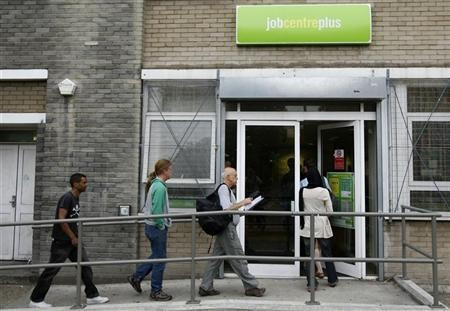Work Programme Providers Failing to Meet Employment Target

Private contractors working under the government's flagship welfare-to-work scheme are failing to meet their targets in helping the long-term unemployed into a job.
Figures released by the Department for Work and Pensions (DWP) reveal that just 3.5 percent of the 878,000 people referred to the Work Programme's providers in its first year were lifted into sustainable employment for at least six months.
This is below the 5.5 percent target providers were set by the government.
"While these figures show progress is being made, the government is clear that there is more to be done," said Mark Hoban, employment minister, in the House of Commons as he released the data.
"Each provider has a performance development plan and the department is managing them vigorously to constantly improve performance.
"Formal contract letters requiring improvement have been issued to those providers with the lowest performance to date.
"We are going to look at what can be done to get national employers better engaged with the programme; improve access to skills support for participants; enable better sharing of best practice between providers and across their supply chains; build understanding and expertise in supporting harder to help claimants; and improve data transparency."
Competition for jobs is fierce. Unemployment is high in Britain, with 2.51m out of work in November.
Under the Work Programme, private service providers try to equip the long-term unemployed with the skills and experience for a job, before attempting to place them in employment.
These contractors are then paid public money on the basis of their performance in getting people into sustainable employment.
Over seven years the Work Programme is designed to help the 2.4m long-term unemployed and sickness benefit claimants into a job, to relieve the government's welfare costs, improve the economy, and change people's lives for the better.
The performance level for each provider is calculated by dividing the number of "job outcomes" over a year - defined as someone who has found sustained employment over a six month period - by the number of referrals they received in the same month.
For the first year's performance level, because the Work Programme had only started in June 2011, the government set a low target of just 5.5 percent of referrals finding sustained employment.
This will then rise to 27.5 percent in the second year, and 33 percent in the third.
Sustainable employment is defined as work for at least a total of six months, all in one block or cumulatively, for more than 16 hours a week.
Providers who fail to meet the target could have their contracts with the government cancelled.
Figures released by the Employment Related Services Association (ERSA), which represents Work Programme providers, show that 207,883 people have found work of some kind through the scheme since it started.
ERSA also said on average it costs £2,097 per person who finds employment under the Work Programme.
"Although it is still relatively early days for the Work Programme, these figures show that the Work Programme is making a real difference to people's lives," said ERSA chief executive Kirsty McHugh.
"Not only have over 200,000 people been moved from long term unemployment into work, but there is clear evidence that month on month performance is building which means there will be a consistent rise in sustained employment numbers in the future."
McHugh added that the performance levels "represent good value for both jobseekers and the taxpayer".
"Finding sustained jobs for the long-term unemployed takes time, so the figures for the first year of the scheme were never going to be high," said Ian Mulheirn, director of the Social Market Foundation (SMF), a leading think tank.
"But the Government knew this and still set as an absolute minimum that providers should find sustained work for eleven in every 200 jobseekers in the first twelve months of the scheme.
"That providers have failed to achieve even half of this raises serious questions about the DWP's expectations for the scheme.
"Unless a better-funded service is provided many jobseekers will slip into permanent worklessness.
"The principles behind the Work Programme are sound for more normal economic times but the funding mechanism has the unfortunate side effect of cutting front-line unemployment services at times of high unemployment and increasing it when jobs are plentiful."
© Copyright IBTimes 2025. All rights reserved.






















